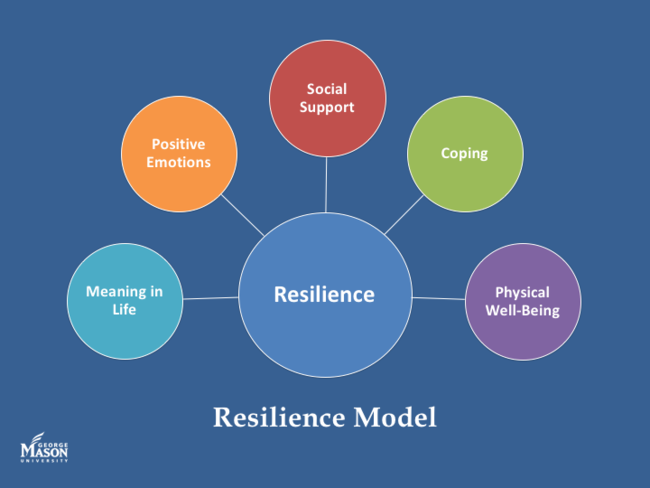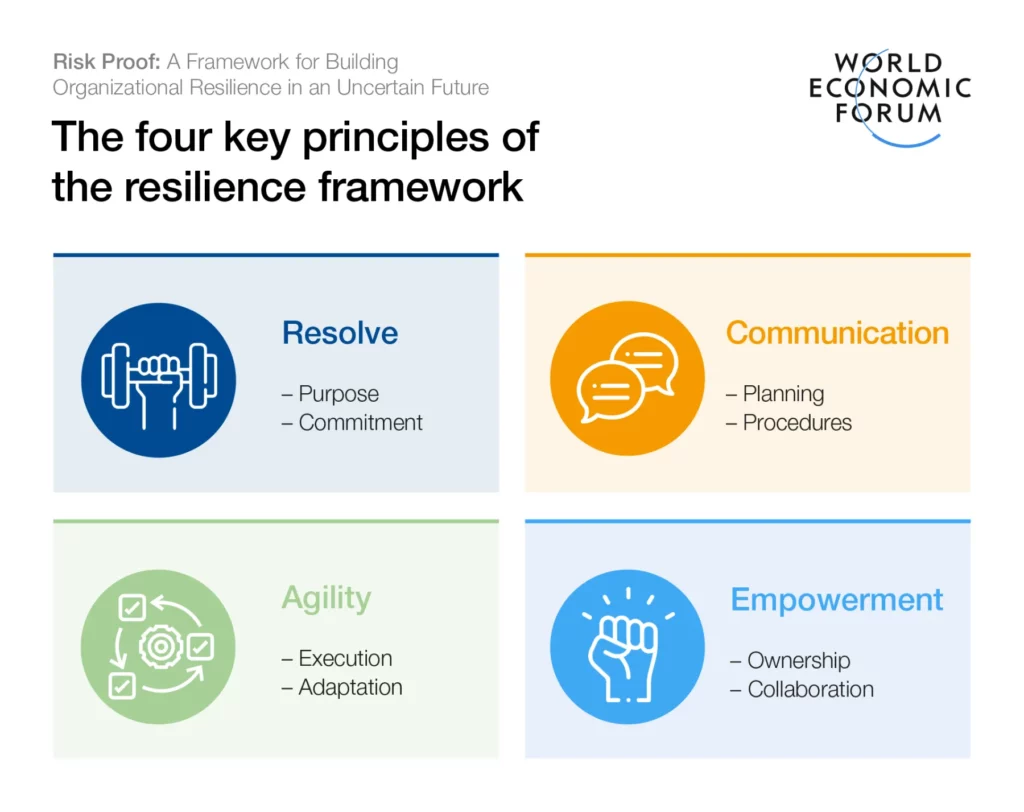Promoting Mental Wellness: 5 Community-Based Strategies For Acceptance

Table of Contents
Raising Awareness Through Educational Campaigns
Understanding the Importance of Education
Education plays a vital role in reducing the stigma associated with mental health conditions and promoting understanding. Mental health literacy—the knowledge and skills needed to understand and address mental health problems—is essential for building supportive communities. When people understand mental illness better, they are less likely to stigmatize those who experience it. Increased awareness leads to greater empathy and encourages individuals to seek help when needed.
- Organize workshops and seminars in community centers: Partner with local organizations to offer free workshops on various mental health topics, such as anxiety, depression, and stress management.
- Partner with schools and universities to incorporate mental health education into curricula: Advocate for the inclusion of mental health education in school curriculums, from elementary school through higher education. This early education can help normalize conversations about mental health and build resilience in young people.
- Utilize social media and local media outlets to spread awareness: Leverage the power of social media campaigns and collaborations with local newspapers, radio stations, and television channels to reach a wider audience and share crucial mental health information.
- Create easily accessible infographics and brochures with key information: Develop user-friendly resources that provide concise and accurate information about mental health conditions, symptoms, and available treatments.
- Highlight success stories and testimonials: Sharing stories of recovery and resilience can be incredibly powerful in reducing stigma and inspiring hope.
Establishing Support Groups and Peer-to-Peer Networks
The Power of Connection
Support groups and peer-to-peer networks offer invaluable therapeutic benefits. Connecting with others who understand the challenges of living with a mental health condition can reduce feelings of isolation and loneliness. Sharing experiences, offering mutual support, and learning coping mechanisms together fosters a strong sense of community and resilience.
- Facilitate the creation of support groups for specific mental health conditions (e.g., anxiety, depression): Offer targeted support groups that cater to the specific needs and experiences of individuals facing similar mental health challenges.
- Organize regular meetings in accessible locations: Ensure meetings are held in convenient, accessible locations with comfortable and welcoming environments.
- Recruit trained facilitators to guide group discussions: Well-trained facilitators can help create a safe and productive space for sharing, ensuring confidentiality and guiding constructive conversations.
- Create online support forums for individuals who cannot attend in-person meetings: Expand accessibility by providing online platforms for individuals who may face geographical or other barriers to attending in-person meetings.
- Ensure confidentiality and a safe space for sharing: Establish clear guidelines for confidentiality and create a supportive atmosphere where individuals feel safe to share their experiences without judgment.
Advocating for Accessible and Affordable Mental Healthcare
Breaking Down Barriers to Access
Many individuals face significant barriers to accessing mental healthcare, including cost, lack of insurance, and limited availability of services. Advocating for change is crucial to ensuring equitable access to mental health support.
- Advocate for increased funding for mental health services at the local and national level: Support policies and initiatives that prioritize increased funding for mental health services to expand access and improve quality of care.
- Support initiatives that expand access to affordable mental healthcare: Advocate for initiatives that make mental healthcare more affordable and accessible to all members of the community, regardless of socioeconomic status.
- Partner with local healthcare providers to improve service delivery: Collaborate with healthcare providers to streamline access to mental health services and improve the overall quality of care.
- Promote telehealth options to increase accessibility: Support and promote telehealth options, which can significantly expand access to mental healthcare, especially in underserved areas.
- Raise awareness about available resources and financial assistance programs: Educate the community about existing resources, such as financial assistance programs and low-cost clinics, that can help individuals access the care they need.
Promoting Inclusive Language and Challenging Stigma
The Impact of Language
The language we use significantly impacts how we perceive and discuss mental health. Using person-first language ("person with depression," not "depressed person") and avoiding stigmatizing terminology is critical for fostering acceptance and reducing prejudice.
- Educate community members on the impact of language and encourage mindful communication: Conduct workshops and awareness campaigns focused on promoting respectful and inclusive language when discussing mental health.
- Organize campaigns to challenge negative stereotypes and misconceptions: Actively challenge harmful stereotypes and misconceptions about mental illness through public awareness campaigns and educational initiatives.
- Promote positive representations of mental health in media and public discourse: Advocate for positive and accurate representations of mental health in media, challenging negative portrayals and promoting stories of recovery and resilience.
- Highlight stories of recovery and resilience: Sharing inspiring stories of individuals who have successfully navigated mental health challenges can be incredibly powerful in combating stigma and fostering hope.
- Train community leaders and influencers on inclusive language: Equip community leaders and influential figures with the knowledge and skills to use inclusive and sensitive language when discussing mental health.
Creating Inclusive and Supportive Community Spaces
Building Welcoming Environments
Physical spaces play a significant role in fostering a sense of belonging and acceptance. Creating welcoming and inclusive environments in our communities can make a substantial difference in how individuals with mental health concerns feel supported.
- Design public spaces that are calming and accessible: Consider creating calming and accessible public spaces that promote relaxation and reduce stress.
- Partner with local businesses to create welcoming and inclusive environments: Encourage local businesses to adopt inclusive practices and offer support to individuals with mental health challenges.
- Offer mental health-related resources and information in public places: Make mental health resources readily available in various locations within the community.
- Organize community events that promote social inclusion and connection: Host events that create opportunities for social interaction and build a sense of community.
- Ensure that community spaces are physically and emotionally safe: Create safe and welcoming spaces where individuals feel comfortable expressing themselves without fear of judgment or discrimination.
Conclusion
Promoting mental wellness through community-based strategies for acceptance requires a multifaceted approach. By implementing these five strategies—raising awareness, establishing support networks, advocating for access, promoting inclusive language, and creating supportive spaces—we can cultivate a community that truly embraces mental health and well-being. Let’s work together to build stronger, more accepting communities where everyone feels supported and empowered to prioritize their mental wellness. Start fostering a culture of acceptance today—your community needs your contribution to promoting mental wellness and building a more inclusive and supportive environment for everyone.

Featured Posts
-
 Mo Salah Contract Liverpools Plan And The Risks
May 02, 2025
Mo Salah Contract Liverpools Plan And The Risks
May 02, 2025 -
 Zhizn Moskovskikh Eskortnits Pravda O Kladovkakh I Krasivoy Zhizni
May 02, 2025
Zhizn Moskovskikh Eskortnits Pravda O Kladovkakh I Krasivoy Zhizni
May 02, 2025 -
 The Hidden Costs Of The Trade War A Look At Chinas Economic Resilience
May 02, 2025
The Hidden Costs Of The Trade War A Look At Chinas Economic Resilience
May 02, 2025 -
 Sulm Vdekjeprures Me Thike Ne Qender Tregtare Ne Ceki
May 02, 2025
Sulm Vdekjeprures Me Thike Ne Qender Tregtare Ne Ceki
May 02, 2025 -
 Rechtszaak Kampen Enexis Aansluiting Stroomnet Betwist
May 02, 2025
Rechtszaak Kampen Enexis Aansluiting Stroomnet Betwist
May 02, 2025
Latest Posts
-
 Harry Styles On That Bad Snl Impression His Honest Response
May 10, 2025
Harry Styles On That Bad Snl Impression His Honest Response
May 10, 2025 -
 Snls Harry Styles Impression The Singers Reaction
May 10, 2025
Snls Harry Styles Impression The Singers Reaction
May 10, 2025 -
 Harry Styles Response To A Bad Snl Impression Disappointed
May 10, 2025
Harry Styles Response To A Bad Snl Impression Disappointed
May 10, 2025 -
 The Snl Harry Styles Impression A Disappointing Reaction
May 10, 2025
The Snl Harry Styles Impression A Disappointing Reaction
May 10, 2025 -
 Snls Failed Harry Styles Impression His Response
May 10, 2025
Snls Failed Harry Styles Impression His Response
May 10, 2025
